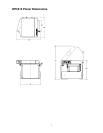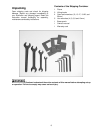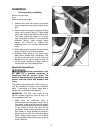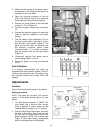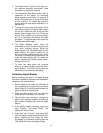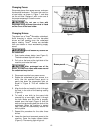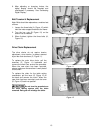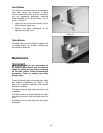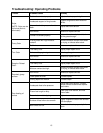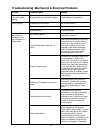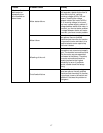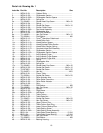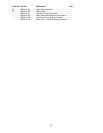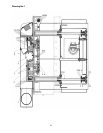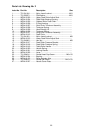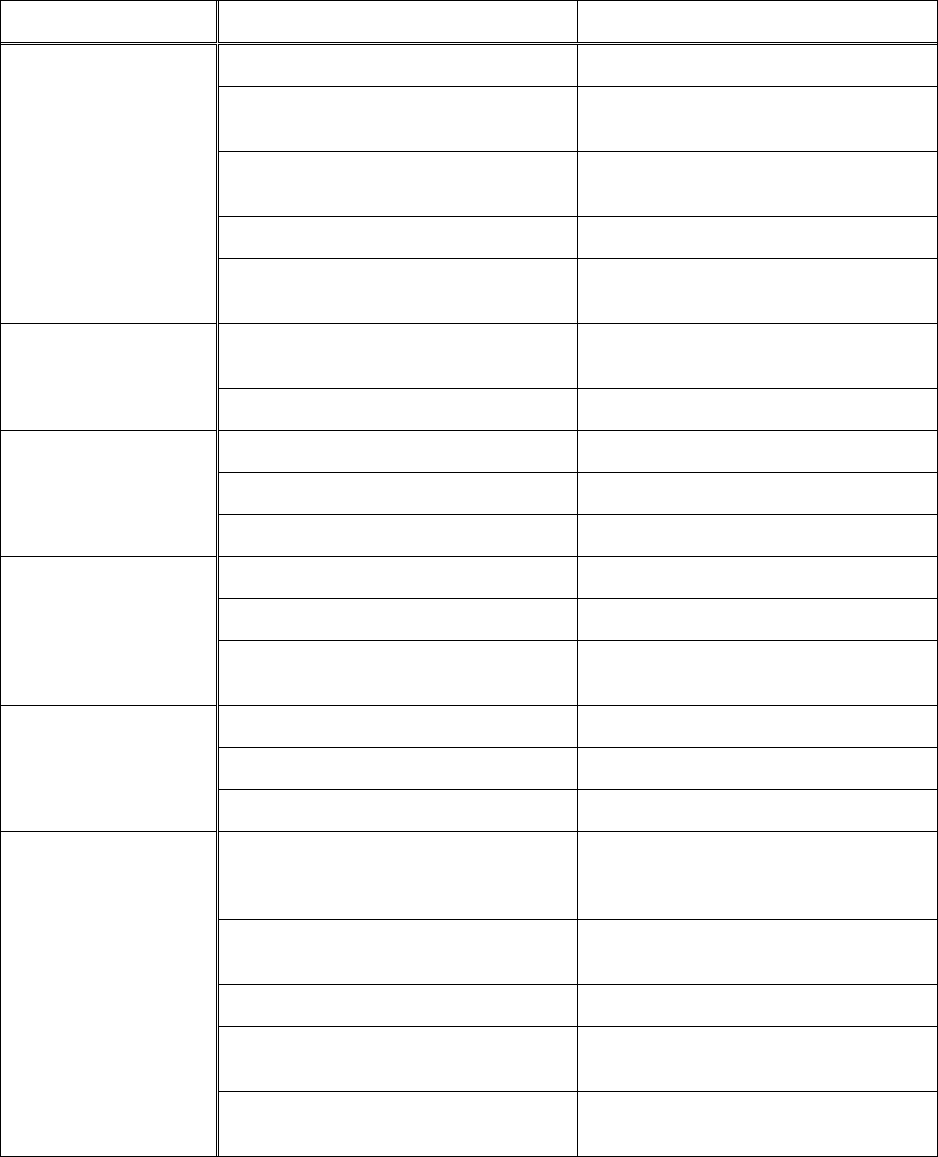
15
Troubleshooting: Operating Problems
Trouble Probable Cause Remedy
Table rollers not set properly. Adjust rollers to proper height.
Inadequate support of long boards.
Support long boards with extension
rollers.
Uneven feed roller pressure front to
back.
Adjust feed roller tension.
Dull knives. Reverse or replace knives.
Snipe
(NOTE: Snipe can be
minimized but not
eliminated)
Lumber not butted properly.
Butt end to end each piece of stock
as they pass through.
Planing wood with high moisture
content.
Remove moisture content from wood
by drying, or choose other stock.
Fuzzy Grain
Dull knives. Reverse or replace knives.
Too heavy a cut. Adjust proper depth of cut.
Knives cutting against grain. Cut along the grain.
Torn Grain
Dull knives. Reverse or replace knives.
Dull knives. Reverse or replace knives.
Too heavy a cut. Adjust proper depth of cut.
Rough or Raised
Grain
Moisture content too high.
Remove moisture content from wood
by drying, or choose other stock.
Dull knives. Reverse or replace knives.
Feed speed too slow. Increase speed.
Rounded, glossy
surface
Cutting depth too shallow. Increase depth.
Inadequate feed roller pressure.
Adjust feed roller tension. If proper
tension cannot be achieved, replace
feed rollers.
Planer bed rought or dirty.
Clean pitch and residue, and wax
planer table.
Transmission v-belt slipping. Tighten transmission v-belt.
Surface of feed rollers too smooth.
Lightly roughen the feed roller surface
with sandpaper.
Poor feeding of
lumber
Bed rollers too low.
Raise bed rollers to proper depth for
stock.



